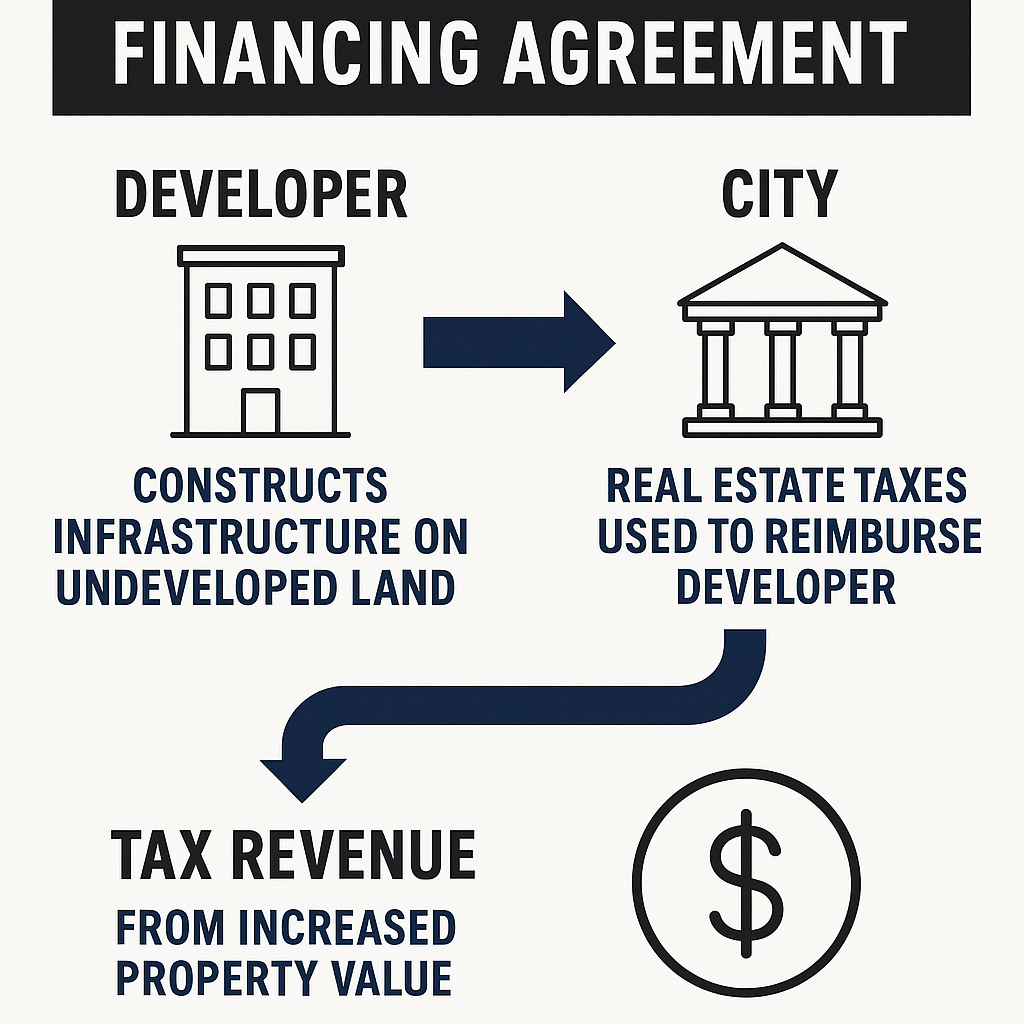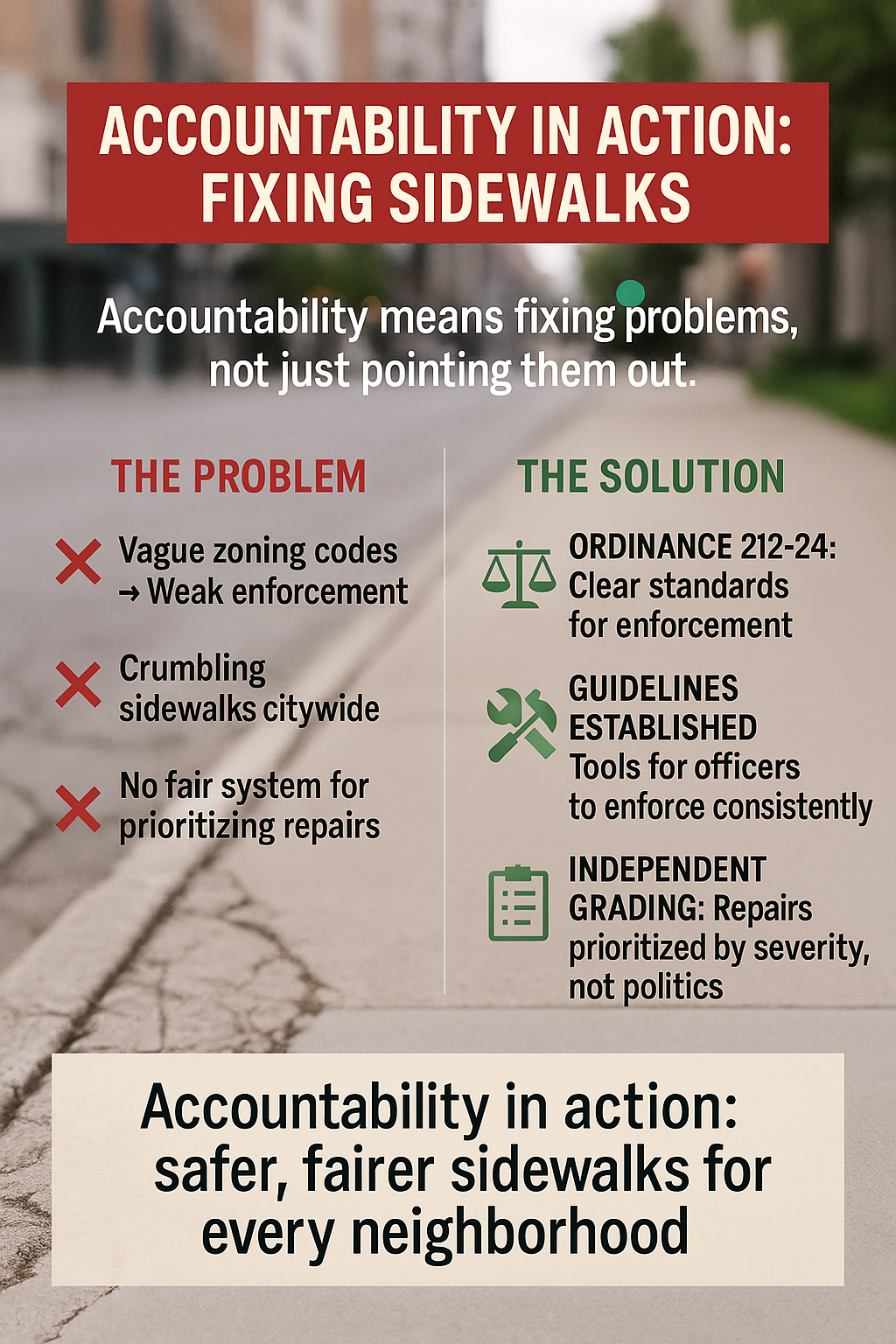Accountability
Accountability is the cornerstone of public service. When citizens place their trust in elected officials, they deserve leaders who act transparently, admit mistakes, and make decisions based on the best interests of the community—not personal or political gain.
For me, accountability means:
-
Owning decisions—both successes and failures.
-
Demanding transparency in how taxpayer dollars are spent.
-
Listening to the people who entrusted us with this responsibility.
-
Holding colleagues and myself to the same high standard we expect from anyone in public service.
Elected office isn’t a position of privilege—it’s a position of responsibility. True accountability means never forgetting who we work for: the citizens.

Accountability - Hiring Independent Council
Holding myself and those who serve alongside me accountable means asking the hard questions—even when it’s uncomfortable. About a year previous, the city administration, council, and law director approved a deal that effectively gave away $50 million in city assets. Soon after, a developer approached council with a request for a Tax Increment Financing (TIF) agreement. In simple terms, a TIF allows a developer to be reimbursed for infrastructure improvements on undeveloped land.
At the time, the Law Director assured council that the deal was “all above board” and met legal requirements. But what I wasn’t hearing was whether the deal was good for the citizens of London. That is why I pushed for council to hire independent legal counsel—a second opinion, a second set of eyes—to review the agreement and identify provisions that could be renegotiated in the city’s favor.
Because of this action, it came to light that there were indeed provisions overlooked in the original review. For example:
-
Penalty percentages that could be lowered to reduce the amount to the developer and allow the city to invest more into infrastructure.
-
The ability for the city to appoint a financial advisor, paid for by the developer, to ensure TIF-generated funds are maximized for public benefit.
These findings prove the importance of independent review. My responsibility was not just to pass legislation but to safeguard the long-term financial health of London. Asking tough questions and seeking outside expertise isn’t obstruction—it’s accountability.

Accountability -"Fixing things so that things can be fixed!"
Accountability requires more than acknowledging a shortfall—it requires addressing it. In London, sidewalks had long been an area of concern. I worked to resolve two major issues:
-
Vague Zoning Codes – Enforcement was ineffective because the codes lacked clear standards. I introduced Ordinance 212-24, which amended the language to provide specific, enforceable requirements. These changes gave code enforcement the clarity they needed to act effectively.
-
Fair, Objective Assessments – With standards in place, the city could engage an independent company to evaluate sidewalks citywide. This ensured that repairs were prioritized based on actual need, not favoritism. The city had previously used similar methods to guide street repairs, and expanding it to sidewalks provided a fair, data-driven solution.
Together, these actions created a clear system of accountability—making enforcement fair, transparent, and effective. (Resolution 102-25)
Stay informed. Get involved. Hold us accountable.
Follow Michael Norman’s plans for Ward 4 and be part of the change.
📬 Contact us today to learn more and find out how you can make a difference!